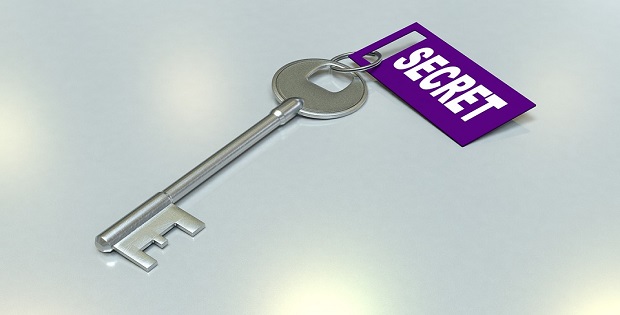How to Come up with a Good Password?
Last Updated on 5 months by Touhid
In today’s internet era, creating an effective, strong password to protect your personal information along with your online account is very necessary for proper security. That’s why in this post, we will give you some important tips on how to come up with a good password.
A strong or good password is not easy to guess for a cyber attacker. So, you aim to create strong passwords using the combined letter, special character, and number with long enough.
Understand the importance of password strength to protect your sensitive information from potential breaches. Make your online account strong. Your journey to online security begins with the knowledge of how to create a strong password you can remember.
Table of Contents
How to Come up with a Good Password?
Make sure your data is safe from potential breaches. Create a strong password that effectively controls your online presence. Learn the important skill of creating a strong password to increase your digital security. Our guide provides valuable insights and best practices for creating resilient passwords against cyber threats.
It is a common case, that we are using weak passwords to remember in our memory like as date of birth, mobile no, employee ID, and 123456, which is one of the prime reasons for cyber-attacks.

So, create strong passwords using letters, numbers, and special characters and change them regularly. However, there are some tips on how to come up with a good password, which are as follows:
- Length should be at least 12 characters long.
- The passwords don’t contain your username, real name, company name, or institution name.
- Should contain uppercase letters (A – Z), lowercase letters (a – z), numbers (0 – 9), and special characters (@, #, $, %, ^, (,), &, *!).
- Example for a strong password: K#a48^mn@2+4.
- Example for weak password: test123456, jellyfish, admin, and password123.
What Makes Passwords Stronger?
A strong password has several key features. This includes effectively making it resilient to unauthorized access. The longer the password, the harder it is to crack but aim for a minimum of 12 or 13 characters. Creating strong and longer passwords provides more combinations. It makes them more secure.
Complications: A strong password includes a mix of character types. A good strong password should be made up of uppercase letters, lowercase letters, numbers, and special symbols, but common words and phrases must be avoided to create a good strong password.
Unpredictability Create passwords that cannot be easily guessed. Do not give easily accessible information such as a birthday, name, or general pattern in password creation. Accessible data using unexpected combinations will not be correct.
Tips On How to Use a Strong Password
Already, we know how to come up with a good password for an account. Now, we will provide useful tips on how to use it:
Don’t share your Password
If you share it with someone, then there is no guarantee that a person can keep your passwords perfectly safe. So, don’t share your username and passwords with anyone except in the case of a shared departmental account.
Use different Passwords for different Account
It is strongly recommended you that use strong and unique passwords for different accounts. If you use the same passwords for multiple accounts such as email, Facebook, Twitter, and LinkedIn, and if your one account password is compromised then all other accounts will be vulnerable.
So, it is better to use unique and different passwords for different accounts.
Don’t save your Passwords on the browser
It is a very bad exercise that, we save our passwords on a web browser because we don’t want to re-enter it for next time login and want to save time. In that case, if your computer or mobile device is ever lost or stolen then the attacker will get access to your online accounts.
In addition, storing your passwords will make your accounts vulnerable to your roommates, family members, and visitors.
Make sure your passwords are long
Make sure the length is at least 12 characters long and must contain numbers, letters, and special characters. It is suggested that longer passwords are even more secure than shorter ones. However, some websites or applications may limit the password length and must have to use combined letters, which is very standard.
Never share your passwords via email
It is very bad idea to sending and receiving passwords via email or text message because of security. Email messages are never encrypted, and they are often sent in “clear” or “plain” text. Since, the email is stored in several systems or servers and if any one of those systems is compromised, it can expose your password to hackers.
Learn more about Encryption.
Change your passwords regularly
Cyber security experts recommend that change your passwords regularly, usually between 30 and 180 days. Here are the reasons, why you should change your passwords:
- A cyber hacker may attempt to enter your account more than once over a period of time. If you change your passwords regularly then it will reduce the cyber risk otherwise they can access your account.
- And if you lose or change your computers or mobile devices, then someone may gain access to your saved passwords. If you consistently change your passwords, then someone finds old, saved passwords, and can’t log into your account.
How Do You Remember Strong Passwords Effectively?
Remembering effective, strong passwords is challenging, especially when they are complex, but creating a strong, challenging password is essential for security. Mnemonics are memory aids that help you associate a complex password with an easy-to-remember phrase or story. For example, if your password is “B#8fTp$G,” you can create a mnemonic like “Big #8 Friendly Tigers Play Golf.”
Password hints: Password hints are signals or reminders. Which you leave for yourself. Which can help you remember your password without giving it to others. Hints should be subtle. So only you understand them.
Using mnemonics and password hints. Strong and complex passwords can be easier to remember while maintaining the security of your account. Try to execute the password correctly. Be careful not to make the hints too obvious to anyone.
Why Is a Strong, Effective Passwords Especially Important?
A strong password is important to you in the online world because it protects your account and personal information. It also helps to protect against unauthorized access. A passphrase is highly necessary for you in terms of security activities that hackers can guess.
Data protection: It helps protect your data, financial information, and communication.
Account security: A passphrase reduces the risk of unauthorized access to your account. It increases the security of your online accounts, making them more difficult to crack.
Privacy: It keeps your personal information from others. And helps maintain your online privacy by preventing access to online activities. Compliance to comply with safety standards and regulations. Websites and organizations often require strong passwords.
Of course, don’t forget to use a combination of characters that are special in your password, and avoid creating passwords with easily guessable information like your birthday and common words so that you don’t have to face problems in the online world.
How to Keep Password Safe?
To keep your passwords safe and accessible, consider the following practices:
Use a password manager: To save, you should use a trusted password manager properly. These tools create and store complex passwords for your various accounts.
They properly encrypt your password data and execute it. Often, having a master password makes it safe and easy to access when needed. As mentioned, examples of password managers mentioned include LastPass and 1Password, as well as examples of password managers in Dashlane.
Safe Backup: It is essential to safely back up your passwords manager data. If you lose access to your passwords manager, a secure backup ensures that you will not be locked out of your accounts. Make sure that this backup is encrypted and stored in a safe place.
A secure external drive or a secure cloud storage service with strong encryption. By implementing these practices, you can protect your passwords. This way, you can maintain your account access securely. And can reduce the risk of losing important data.
Conclusion
Creating and managing strong passwords is paramount in our increasingly digital lives.
Here’s a quick recap of the key points: Passwords strength is determined by length, complexity, and unpredictability. Choose between passphrases and random characters. Use a password manager for convenience and improved security.
Avoid dictionary words. Make passwords memorable with mnemonics and subtle hints. Update passwords regularly. And enable two-factor authentication to store passwords securely with a trusted password manager.
Protects personal information, financial assets, and online identity. Weak passwords are prime targets for hackers in data breaches and identity theft. Protecting your digital life starts with creating strong, resilient passwords.
By understanding these principles and applying them to your online security practices, you can strengthen your digital presence. Can reduce the risk of unauthorized access or a data breach. Remember, your digital security starts with the strength of your passwords.
Hope the article on how to come up with a good password will be helpful for you to create a passphrase.
Affiliate Disclosure : Cyberthreatportal is a participant in the Amazon Services LLC Associates Program, an affiliate advertising program designed to provide a means for website owners to earn advertising fees by advertising and linking to amazon.com.





